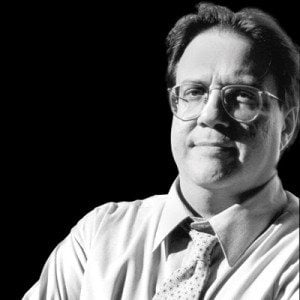Citizen Journalists Go After City Emails

A version of this story ran in the April 2013 issue.
Access to public documents is the bedrock of investigative journalism. The godfather of modern reporting in America, I.F. Stone, built his reputation parsing the endless reams of neglected paperwork churned out by government bureaucracies, then using the often-overlooked documents against the government that produced them, resulting in a series of incriminating scoops.
Austin-based Ken Martin, a feisty 70-something former Marine who runs a small investigative news website called TheAustinBulldog.org, has helped kindle a fire that could spread around the state, and might prove that the tools of Journalism 2.0 have leveled the media playing field more than most people realize.
Two years ago Martin began an aggressive one-man campaign to see if he could ferret out personal emails sent by Austin City Council members that might relate to public matters. Martin filed requests under the state’s Public Information Act asking for the emails, and when the city dragged its feet in response, a friendly lawyer filed suit, arguing that the public has the right to know if city council members are negotiating the public’s business in private.
The case ping-ponged back and forth, but in the end the city coughed up some of the correspondence, validating Martin’s belief that residents of Austin and other Texas cities are often subject to what he calls “government in the shadows.”
Martin’s lawyer, Bill Aleshire of Austin, is now working with attorneys in El Paso who are trying to obtain another batch of city council and city manager emails that might be tied to public business—in this case, communications dealing with a controversial plan to bypass a public vote and speed construction of an expensive new downtown baseball stadium in El Paso.
The Texas Attorney General’s office—rightly insistent on municipal compliance with the Texas Public Information Act—has been at war with El Paso city attorneys who have claimed that the act’s transparency rules are unclear, and that not all the requested documents need to be released.
Adding more evidence that non-mainstream sites like Martin’s Austin Bulldog are stealing journalistic thunder from Texas’ so-called legacy outlets, an El Paso website has sprung up to bird-dog the emerging El Paso documents. It’s called Chucoleaks.org, and it describes itself this way: “Born out of the exposure of the downtown baseball stadium scandal, Chucoleaks is the regional aggregator of El Paso City Council records City Council does not want you to see.”
For his part, Martin is waiting to see whether other citizen journalists will challenge other Texas cities on similar grounds—perhaps Dallas Area Residents for Responsible Drilling, which has already used open-records requests to keep an eye on natural gas operations in and around the city.
“To allow officials to evade turning over the records of public business conducted on private devices and accounts would be to gut the Texas Public Information Act and permit the public’s business to be done in the shadows, instead of in sunshine, where it belongs,” Martin says.
But a 2012 study by The Center for Public Integrity (conducted by Kelley Shannon, a Texas media stalwart formerly with the Associated Press) reveals that there remains a lot of work to be done before Martin’s brand of investigation becomes commonplace in Texas. Shannon discovered that certain Texas cities consistently petition the Attorney General’s office seeking exemptions from release requirements. Dallas suburbs including McKinney, Garland, Mesquite, Plano and Arlington were among the places most prone to resisting open-records requests. (The AG’s office has referred to Dallas as a “repeat offender” in its resistance to public–records requests).
Despite such stonewalling, Martin is optimistic that citizen journalists will continue to pursue city officials.
“No one is asking for and no one wants access to a public official’s private correspondence,” he says. “We ask only for electronic communication exchanged with others about public business.”
Martin also expects his strategy to become contagious: “I hope it’s a virus that spreads rapidly.”


